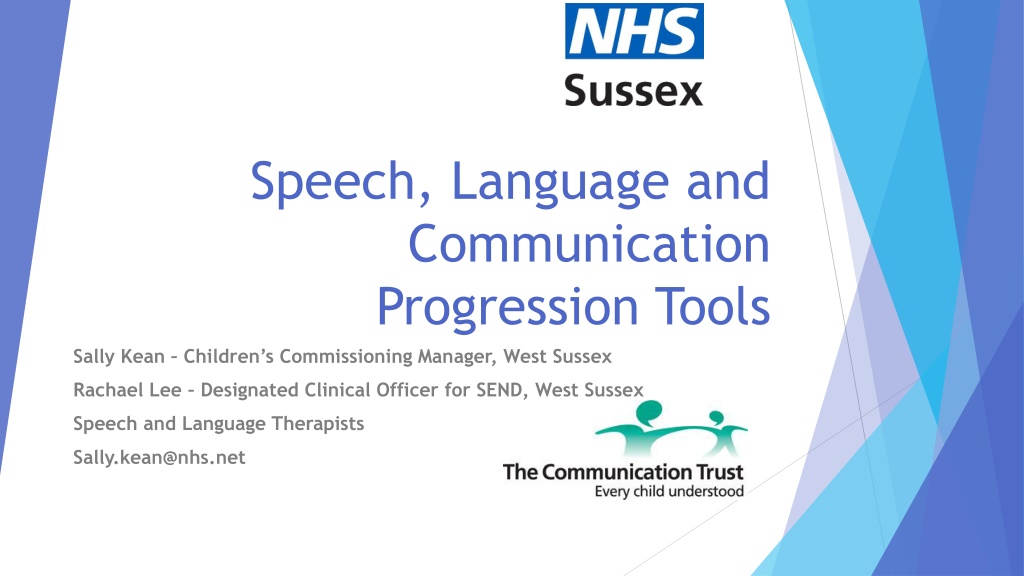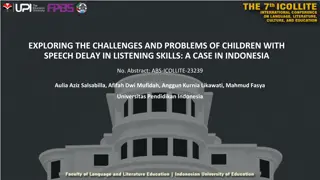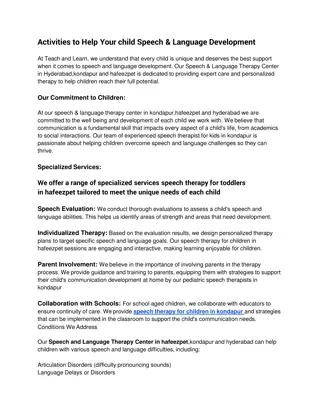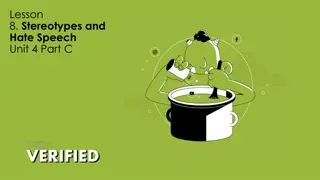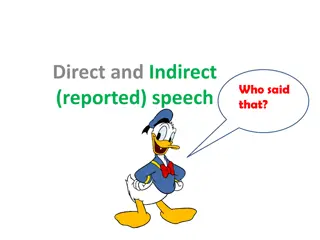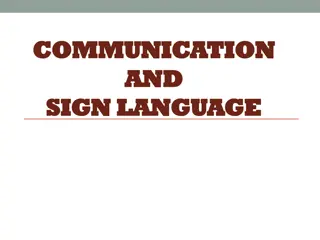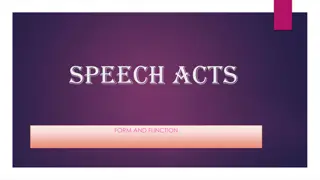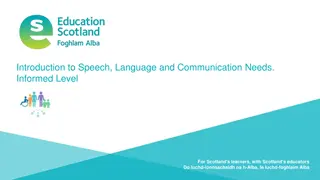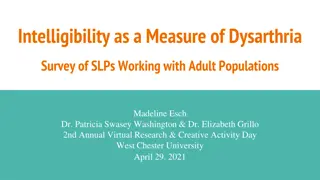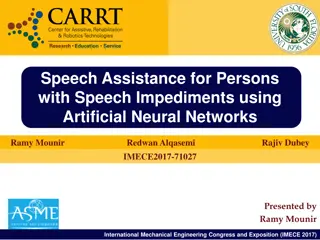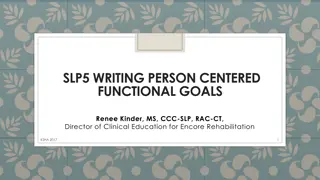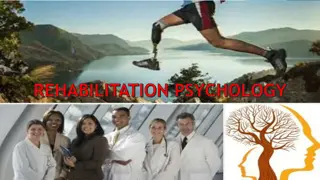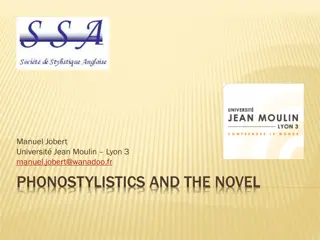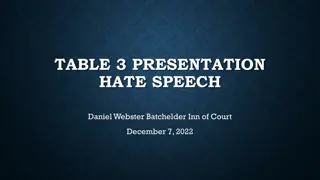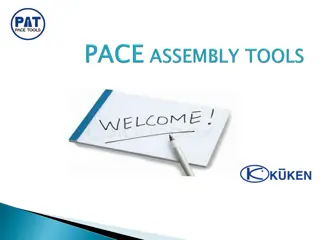Understanding Speech, Language, and Communication Progression Tools
Explore the importance of speech, language, and communication support for children and young people, with insights on the prevalence of difficulties and their impact. Discover tools developed to identify and track progression, along with a graduated approach in the classroom. Learn how to use these tools effectively through observation and interaction with children and young people.
Download Presentation

Please find below an Image/Link to download the presentation.
The content on the website is provided AS IS for your information and personal use only. It may not be sold, licensed, or shared on other websites without obtaining consent from the author. Download presentation by click this link. If you encounter any issues during the download, it is possible that the publisher has removed the file from their server.
E N D
Presentation Transcript
Speech, Language and Communication Progression Tools Sally Kean Children s Commissioning Manager, West Sussex Rachael Lee Designated Clinical Officer for SEND, West Sussex Speech and Language Therapists Sally.kean@nhs.net
Did you know..?: In the UK, over 1 million children and young people - that's 2 - 3 in every UK classroom - have some form of long term and persistent speech, language and communication difficulty. This can affect them early, severely and for life. 50-90% of children with persistent speech, language and communication difficulties go on to have reading difficulties In areas of poverty, over 50% of children are starting school with delayed communication skills. Their speech may be unclear, vocabulary is smaller, sentences are shorter and they are able to understand only simple instructions.
Did you also know..? More than 50% of pupils excluded from school have unidentified language difficulties Around 65% of individuals in the Youth Justice System have some form of communication difficulty Up to 75% of secondary age pupils in certain areas of the UK have limited language In one study 88% of unemployed young men were found to have language difficulties Ref. ICAN/ RCSLT
What are the speech, language and communication progression tools? Support school staff to identify students with possible SLCNs Enable school staff to track progression over time Based on theoretical information about typical language development
How were the tools developed? Specialists and mainstream school staff Tested on children and young people Results and feedback refined for final version of tools
Graduated approach in the classroom What? How? Next Steps? 1. Look at all the pupils Top tips for spotting SLCN (Misunderstood) Identify the pupils you are worried about. 2. Look at these pupils in a bit more detail Use universally speaking booklet. Try some ways to check it out in class. Are they doing what they should be? Try out some classroom approaches to support SLC. This will tell you wave 2 or wave 3 3. Look at the pupils still causing concern. Use the progression tool
How do I use the tools? Questions to complete 1:1 with child or young person Adult completes observation section
What do I do with the results? Check appropriate universal strategies are in place in the classroom for all children. Targeted small group work. Published resources also available. Discuss at termly planning meeting with SLT.
Video How to use the Progression Tools https://youtu.be/5V6uIuil0b4
Top Tips Read Practical steps Photocopy Record exactly what child says Find quiet space
How do the tools link to the National Curriculum Primary Essential to help schools understand what progression in spoken language should look like from years 1 to 6 so they can develop their own descriptors about progression for each year group. Could be used to show evidence of progress. Secondary Areas assessed relate well to the objectives for Spoken English at Key stage 3 and 4. Understanding vs speaking The tools focus more on understanding of language than NC programmes of study do.
Further Support www.speechandlanguage.org.uk Reminder/Refresher Training Video Getting the most out of the tools Top tips Primary and Secondary Ages and stages of communication development Universally Speaking Booklets
Free resources: Electronic versions of scoring, answer sheets and profile will be shared after training. Downloadable Misunderstood https://councilfordisabledchildren.org.uk/sites/default/files/uploads/files/misunderstood-supporting- children-and-young-people-with-speech-language-and-communications-needs.pdf Don t Get Me Wrong https://issuu.com/thecommunicationtrust/docs/dontgetmewrong Universally Speaking (birth-5, 5-11, 11-18) https://speechandlanguage.org.uk/shop-for-educators/ Let s Talk About It https://issuu.com/thecommunicationtrust/docs/lets_talk_about_it Top Tips (Primary/Secondary) https://speechandlanguage.org.uk/talking- point/for-professionals/primary-and-secondary-school-teachers/ Frequently Asked Questions https://speechandlanguage.org.uk/talking- point/for-professionals/professionals-faqs/ Staff training CPD opportunities https://speechandlanguage.org.uk/talking-point/for- professionals/the-communication-trust/
Targeted Resource List: Understanding Vocabulary Sentences Narrative Speech Social School Start (Speechmark) School Start (Speechmark) School Start (Speechmark) School Start (Speechmark) EYFS Reception Narrative pack (BSP) Reception Narrative Pack (BSP) Reception Narrative pack (BSP) Reception Narrative pack (BSP) Reception Narrative pack (BSP) Time to Talk (LDA) Time to Talk (LDA) Time to Talk (LDA) Time for Sounds BSP (Nursery or Reception pack)) Time to Talk (LDA) KS1 Narrative pack (BSP) KS1 Narrative pack (BSP) Robust vocabulary KS1 Narrative pack (BSP) KS1 Narrative pack (BSP) KS1 Narrative pack (BSP) KS1 Time for Sounds (Reception) Lego Therapy Word Aware (Speechmark) Socially Speaking (LDA)
Understanding and verbal reasoning KS2 Narrative pack (BSP) Understanding and using vocabulary KS2 Narrative pack (BSP) Sentence structure and narrative KS2 Narrative pack (BSP) Social interaction KS2 Narrative pack (BSP) KS2 Active listening for Active Learning (Q Ed publications) Robust vocabulary Lego Therapy Word Aware (Speechmark) Socially Speaking (LDA) Reading Between the Lines (Speechmark) Rhodes to Language (STASS publications) Rhodes to Language (STASS publications) Talkabout Activities (Speechmark) Think About It/ Speech Bubbles (BSP) Language for Thinking (Speechmark) Active listening for Active Learning (Q Ed publications) Robust Vocabulary Secondary Talk (templates) (BSP) Talkabout for Teenagers (Speechmark) KS3/4 Rhodes to Language (STASS publications) Reading Between the Lines (Speechmark) KS2 Narrative pack (BSP) Lego Therapy Vocabulary Enrichment Programme (Speechmark) Narrative Intervention Programme (Speechmark) Think About It (BSP) Language for Thinking (Speechmark)
Resource to download for interventions Word Aware https://youtu.be/G-v61HNtG4c More detailed Progression Tools video https://speechandlanguage.org.uk/shop-for- educators/progression-tools-from-the-communication- trust-for-primary-years-set/ https://speechandlanguage.org.uk/shop-for- educators/progression-tools-from-the-communication- trust-for-secondary-years-set/
General SLCN resources Elklan Language Builders 5-11, 11-16 Verbal ASD Elklan Let s Talk 5-11, 10-14
Principles of running groups Pick the group carefully Think about the seating Keep the length short Make a visual timetable, make it active Active involvement Visuals throughout
Vocabulary groups Children with vocabulary difficulties need: Strengthening general knowledge of the word (semantic) Description, function, location, category, similarity, association Understanding the structure of the word (phonetic) Length, syllables, rhyme, initial sounds, other sounds Frequent repetition across different context/activities Word maps are a useful visual support
Social skills groups Useful resources: Talkabout, Socially Speaking Twinkl https://www.theottoolbox.com/social- skills-checklist/
Narrative groups BSP narrative packs Narrative grids Attribute grids Spidergrammes
Emotional literacy The Bear Cards Emotion monsters Zones of Regulation
